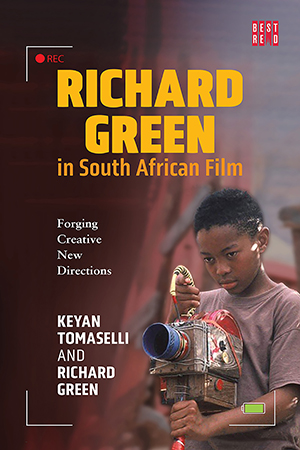
- 2023/276 pages
- Distributed for Best Red, an imprint of HSRC Press
Richard Green in South African Film:
Forging Creative New Directions
Paperback: $45.00
ISBN: 978-1-928246-60-2
Ebook: $45.00
ISBN: 978-1-928246-65-7
Both a history and a critique of South Africa's film industry, this book recounts the long experience of filmmaker and producer Richard Green.
Green's story—especially his work in forging the film initiative New Directions Africa—is emblematic of the struggles, negotiations, and competing ideologies that faced South Africa as it emerged from apartheid. He continues to be an essential part of what is now a burgeoning industry that not only supports the creative work of Africans, but is also seen as having an important role in the nation-building process.
Green's story—especially his work in forging the film initiative New Directions Africa—is emblematic of the struggles, negotiations, and competing ideologies that faced South Africa as it emerged from apartheid. He continues to be an essential part of what is now a burgeoning industry that not only supports the creative work of Africans, but is also seen as having an important role in the nation-building process.







